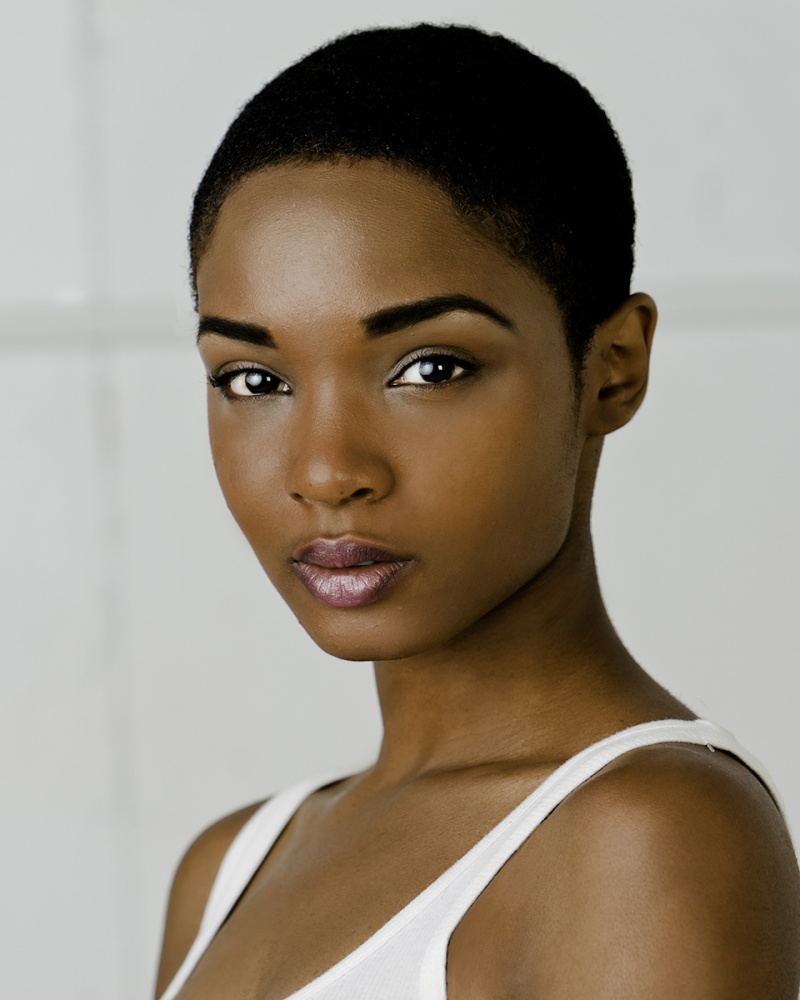 Straight Outta Compton is clearly doing the damn thing at the box office. Since its debut about a month ago, the film has become the highest grossing music biopic in history. And no shade, but shade…given the music biopics of late…that Whitney biopic that should have been called the Whitney and Bobby Show, that Aaliyah biopic that was a hot damn mess, and that TLC biopic that was ehhhhhhh, folk have clearly been checking for some 90’s nostalgia. And while some may believe it is unfair to compare made for TV movies with a heavily anticipated film with a $28 million dollar budget and a PR campaign that included everything from Straight Outta Tshirts to social media memes, so that e’erbody was repping they was “Straight Outta” wherever and whatever, from they mama to they ‘hood, I think at the heart of the matter folk of color in their 30 and 40 somethings trying to reminisce on the love we had, back in the day, complicated as it is/was, with hip hop.
Straight Outta Compton is clearly doing the damn thing at the box office. Since its debut about a month ago, the film has become the highest grossing music biopic in history. And no shade, but shade…given the music biopics of late…that Whitney biopic that should have been called the Whitney and Bobby Show, that Aaliyah biopic that was a hot damn mess, and that TLC biopic that was ehhhhhhh, folk have clearly been checking for some 90’s nostalgia. And while some may believe it is unfair to compare made for TV movies with a heavily anticipated film with a $28 million dollar budget and a PR campaign that included everything from Straight Outta Tshirts to social media memes, so that e’erbody was repping they was “Straight Outta” wherever and whatever, from they mama to they ‘hood, I think at the heart of the matter folk of color in their 30 and 40 somethings trying to reminisce on the love we had, back in the day, complicated as it is/was, with hip hop.
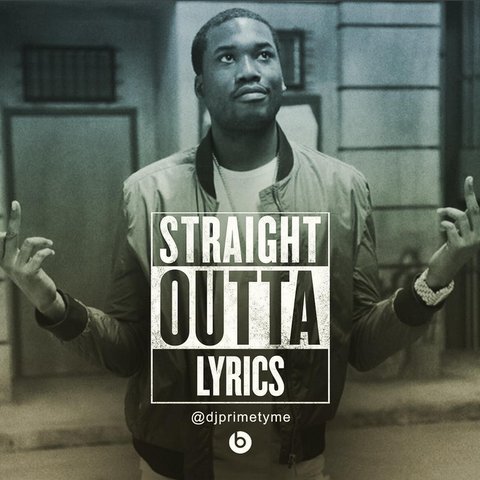
And another notable difference between the biopics is that the smaller and less successful ones focused on the lives of women artists (whose relationships with men were so tightly woven into their narratives that they sometimes became lost in their own stories), while Straight Outta Compton clearly focuses on the black men in the group N.W.A., with women relegated to the sidelines as hypersexualized props, demanding and demeaning mothers or baby mamas, and redeeming, long suffering, light-skinned heroines who save the day, or at least the man she loves at the end of the day (more on that ish later).
So, I want to reflect right quick on my experience as a (dark-skinned) black woman, who remembers the ways boys and men treated (dark-skinned) black girls and women, influenced by the likes of N.W.A. and related acts that followed (Death Row Record artists Dre, Snoop Dogg, and Tha Dogg Pound in particular claiming “ain’t no fun if the homies can’t have none”) back in the day (early to mid 90’s), watching the film in 2015 knowing full well that misogynoir ain’t nothing new and ain’t never been gone. Bottom line, I felt some kinda way.
Of course back then, in the 90s, some of the misogyny was tempered by R&B artists and songs that made love and loving (even dark-skinned black women) seem possible (“the blacker the berry, the sweeter the juice”), but the lyrics were never as culturally loud as stereotypical hip hop (before it was briefly and politically wed to R &B). And to hear hip hop tell it, or rather Dr. Dre, women, oops I mean “bitches” ain’t shit but hoes and tricks.
So back to the film, the casting call was racist and sexist as hell, grading women from A’s to D’s based on their complexion, hair, waist size and overall culturally acceptable aesthetic. So I should not have been surprised that the separation and division (read: worth, desirability, potential goodness) of women in the film would be made visible on the screen. This takes me back to my earlier point, the women in the film who are given speaking parts, whose existence went beyond their body parts, are the eventual wives or longtime partners of Cube, Dre, and Eazy, who just so happen to be “A’s” according to the casting call.
So, let me be clear. I did not dislike the film. I agreed with both the praise and critiques, and found the first half compelling and the second half somewhat unbelievable (or full of intentional gaps and erasures, unnecessary name drops and pseudo-heroism making “good guys” out of complicated human beings, who weren’t always that good), but what I was really baffled about, what I really wanted to know when I walked out the theater that day was what it is or was about these so-called grade A, light-skinned or racially ambiguous women with long hair that allows them to seemingly turn men out or rather turn them good? What is it about the love of a good (light skinned) woman that can turn these hypermasculine misogynists and womanizers into one-woman men, or to use their vernacular, turn a hoe into a husband? This is a real question. I’m asking for a homegirl.
And while I am being intentionally sarcastic, I am partially serious. The film fails to give us the love story, if you will, the moment, experience or turning point wherein these men have an epiphany with or because of particular women after having dogged out, shit on, beat up, cheated on, and utterly dehumanized other women. I want to know the “you make me want to be a better man” story, or the “this is more than thug love” story that makes it clear to me what happens to make some women worthy and others not (Cube describes this as the difference between “upstanding ladies and despicable females”), especially when the so-called exceptions are in the same place as the women they believe deserve disrespect (Dre’s girl, I don’t remember if she had a name, caught his eye at Eazy’s Wet ‘n Wild party, what the hell made her stand out of the hundreds of half-naked women, and what made her immediately above the bitch/ho dichotomy?).
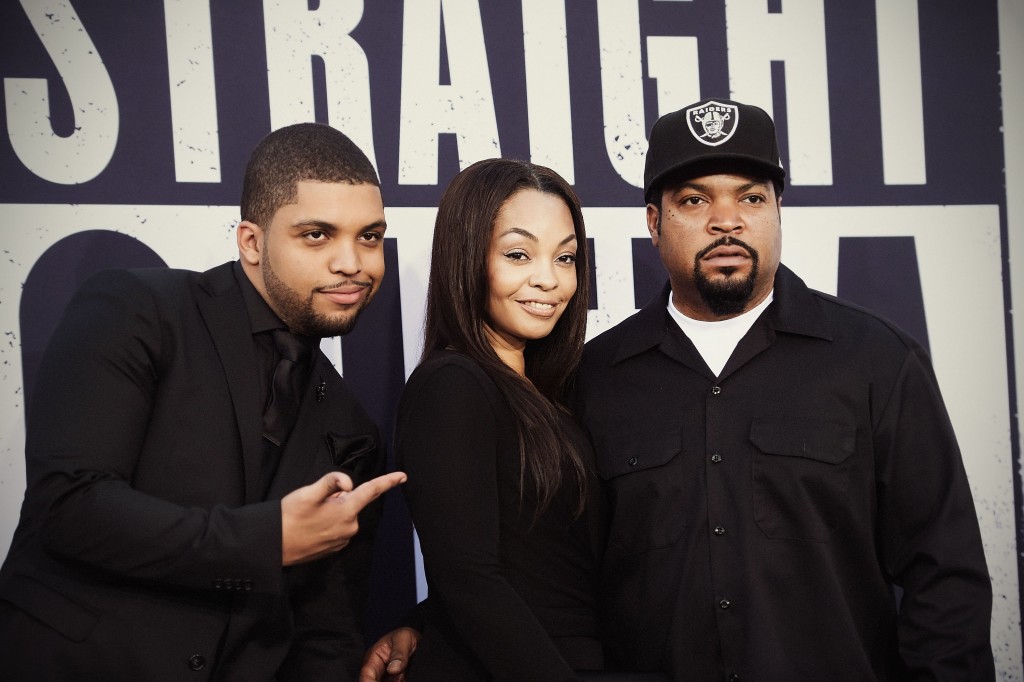
(Photo Credit: Jason Kempin/Getty Images)
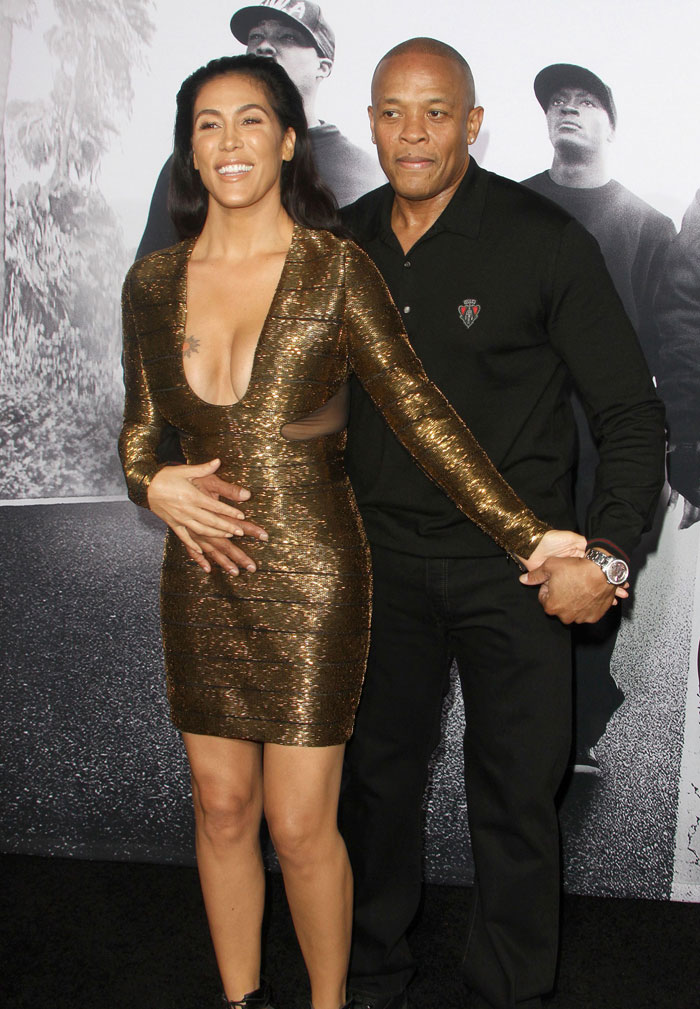
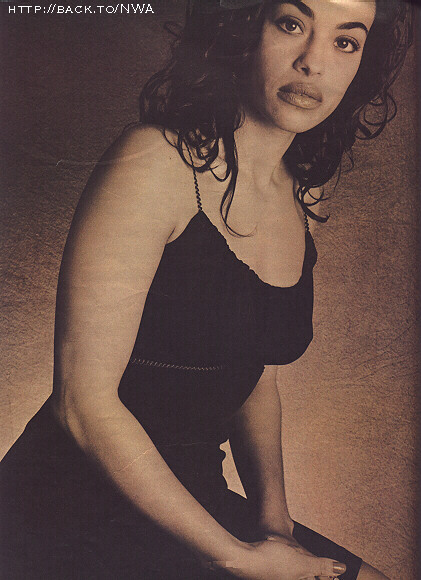
So there is a lot to be critiqued and discussed regarding women in the film, not only those who are blatantly missing (Michell’e and Dee Barnes), but those who are present and missing. The wives of the frontmen of N.W.A are beautiful, no doubt, but what are we to walk away believing about (dark-skinned) black women and their worth, their sexual agency, their desirability or capacity to love or be loved by black men? “C” and “D” women are clearly fuckable, showing up in orgy scenes and hotel rooms (we never see the men having sex with their wives or main girlfriends), but they are not chosen, named (with the exception of Felicia, but that is another blog for another day), or desired outside of a sexualized context.
Misogyny and patriarchy in relationship to racism and colorism make it easy to dismiss (and perhaps not recognize) the ways dark-skinned black women are constructed in the cultural imagination as less than. We are erased or typecast, both in film and everyday life.

Wow. Did you ever hit the nail on the head. I was thinking along these lines when I suffered thru Norbit so I could bond with my teenager. Why are all the fat, disgusting, loud, ignorant, delusional women in Eddie Murphy’s movies of a darker hue?
There are no objective standards. You are a lady or a female based on the person, especially if they are male, who is stating this opinion.
This is why I could never subscribe to the dichotomy of Madonna/whore. As a woman, no matter what you do, how saintly, non sexual, demure, you present yourself, because you are not the one who is defining your worth, you as a woman are always in danger of having your status as a “lady” taken away just by someone else saying so.
I believe these thoughts have run through the minds of most women with a ‘darker hue’ .. And not just this movie which I haven’t seen but am not surprised that ‘wifey’ was light skinned.. The mysogynist behavior of black men towards the darker skin woman goes further than hip hop. It’s in our educational system, our homes, the media (with or without hip hop), the different greetings you get when you’re accompanied by your light skin family member or friends tell you how deep seeded this is in society as a whole let alone our culture who continues to perpetuate it. But then again how can a black man (dark hue) feel good about the beautiful dark skinned woman, if he looks in the mirror and wishes he was lighter or whiter. No offense to the light skinned woman but in his eyes she’s a prize (the ultimate trophy) is she can love him, he can be loved. It’s a sick society